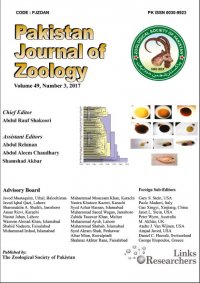During this study, guava fruit extract was tested for its ameliorative effects on congenital defects induced by cadmium in developing mice. For this purpose, different aqueous concentrations of cadmium chloride i.e. 0.00, 6.25, 12.50, 25.00 µg/g B.W of mice were given orally to pregnant mice on days 6-12 of gestation daily. Another series of mice were treated with different concentrations of cadmium chloride and also with an antidote (guava fruit extract) on days 6-18 of gestation daily once a day. Fetuses were recovered on day 18 of gestation, analyzed based on morphological, morphometric, histological and skeletal characteristics. Morphometric analysis of the cadmium treated groups indicated a significant (p<0.05 to p<0.001) reduction in fetal body weight, crown rump length, head circumference, eye circumference, forelimb and hind limb lengths and tail size compared to control fetuses. Morphological studies of fetuses showed abnormalities like micromelia, skeletal defects, hemorrhages, displacement of limbs, open eyelids and distorted axis. Histological defects included dilation and absence of ventricles, underdeveloped cerebellum, microcardia, necrosis in atrium, underdeveloped ventricles, hydropericardium and necrosis of the liver. Skeleton analysis of cadmium treated groups showed mostly un-ossified skeletons. The control mice showed normal ossification as compared to experimental groups. Morphological, histological and skeletal studies of fetuses treated cadmium chloride along with guava fruit extract revealed ameliorative effects on various kinds of birth defects. It is concluded based on this current study that guava fruit extract exerted a therapeutic effect on developmental anomalies induced by cadmium exposure in prenatal mice.










